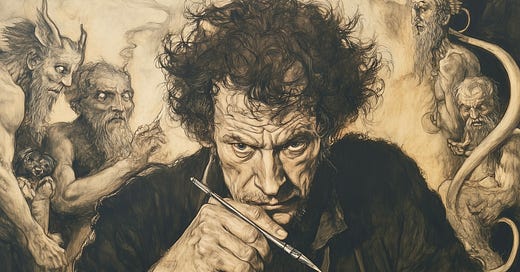Let’s be honest. Very few people read or write poetry anymore. After all, what is it for? What purpose does it serve? Of course, in the (ancient) past poetic inspiration was considered a gift from the otherworld, and poetry was a form of mantic expression. The Irish Filid or poet-class enjoyed a rank similar to that of a regent, purely on the basis of t…
Keep reading with a 7-day free trial
Subscribe to Mark Nemglan to keep reading this post and get 7 days of free access to the full post archives.




